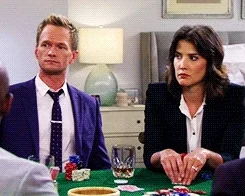Originally published at: Oklahoma sheriff taped talking about murdering a journalist and lynching Black people says that recording him was a crime | Boing Boing
…
That mustache is a crime.
Completely clear of the “woke mind virus”, this one.
Do ya really want to play that hand?

“The initial recording does not match the subsequent transcript of the recording, therefore, the initial recording must clearly have been altered.”
/s
Who are you going to believe? Me, or your lying ears?
I really wonder if “pay no attention to our crimes and heinous behavior, instead look at the ‘crime’ of exposing us” is going to work for them on any level at all. Seems like they’ve pretty conclusively lost in the court of public opinion (I mean, they should have, anyways), and all they can do is punitively persecute the reporter for exposing them. Hopefully they’re not in office long enough to make the reporter’s life even mildly difficult.
One has to wonder just how many sheriffs there are like this across the country, having secret corrupt meetings with officials and (semi-)planning murders and yearning for the “good old days” of lynching, but no one is there to record them. I’m guessing quite a few.
Racism unlike bigotry hates being exposed to the light.
If the reporter was present in the room and they knew he was there, then he was a party to the conversation. They have zero chance of winning that argument. The entire concept is based on expectation of privacy. If you are having a discussion with a bunch of people, and there’s a reporter in the room and you know they’re in the room, there is NO expectation of privacy.
I think they mean that the transcript of the recording that’s in the media reporting on this story doesn’t match the audio in the recording. They didn’t make their own transcript at the time of the meeting because the meeting was an off-the-record meeting they weren’t supposed to be having at all, which is why the reporter recorded it. Anyway, I wouldn’t be surprised at all if there are errors in the transcription. I grew up in north Texas right by the Red River, and lived in Oklahoma for nine years, and I could barely understand that guy. His Oklahoma accent was thick, thick, thick.
… it sounds like the reporter left a recording device behind after leaving the room (or something)
legally shaky maybe, but a journalistic home run
Oh I missed that detail. Yeah…that’s not legal, actually. I mean, I’m glad he did it, but he’s going to potentially get in some trouble for that. Small price to pay for exposing racism and corruption, though.
Maybe something like a break for lunch of a public meeting, where the reporter suspected the commission continued the meeting once everyone else was gone? ![]()
The way that public meeting laws work, those people being in the same room together, especially if they continued to occupy the County Commission meeting room, most likely constitutes a public meeting in and of itself. As such, they have no expectation of privacy, and in fact are required to keep a recording and/or minutes of the “meeting.” The violation of the law here is that they did not give adequate public notice ahead of time so that members of the community could attend. Meeting off the books is exactly what the reporter was hoping to document. All the racist stuff is the especially noxious icing.
Oh I’m well aware of their violations. The reporter could, technically, also be charged with a crime here. Will he be? I kinda doubt it. At this point, given public sentiment, I doubt a jury even in Oklahoma would convict him for that. I imagine the local prosecutor, who I’m sure is elected, is going to nope right away from that case. Regardless, breaking the law isn’t always the wrong thing to do.
The reporter was not in the room at the time of the conversation - he left a recording device running, exited the room and retrieved the device later.
You’re correct. The reporter could be charged. But beyond a local prosecutor refusing to act on it, any judge worth their law degree would toss the case because the reporter likely didn’t break any law. There’s no law against recording a public meeting, even if you are not present in the room when it occurs.
It’s not really important at this point, but I don’t know if that closed door meeting would legally be considered a continuation of the earlier public meeting, or just a private meeting that should have been public. Doesn’t matter. We all agree on who the bad guys are here. Whether or not the reporter technically broke the law, he’s not going to be charged and he did the right thing.
Yes, that was already pointed out to me.
The response to the recording certainly triggered the Streisand Effect.
